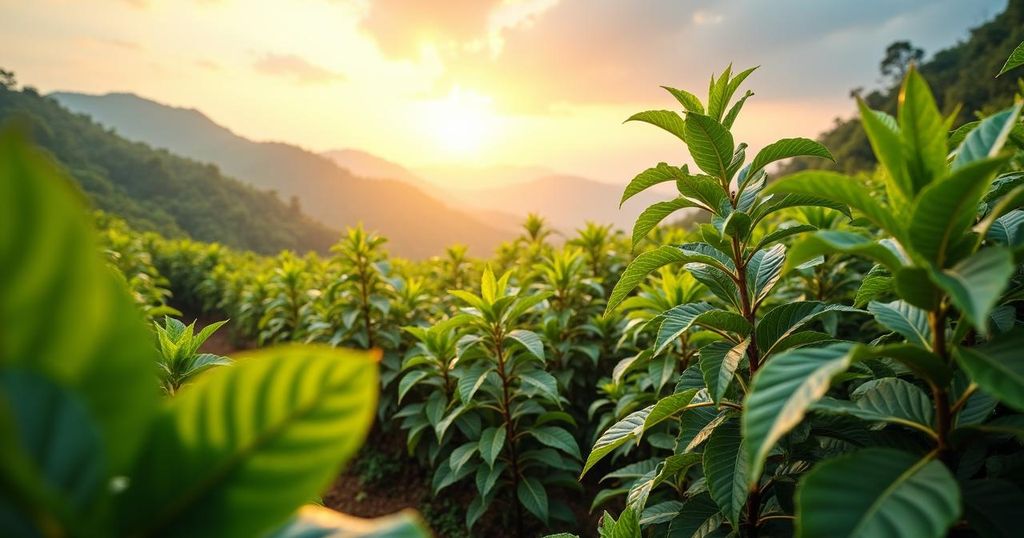Vietnam’s coffee crop is expected to see a significant shortfall due to a severe drought, potentially resulting in higher prices for consumers. This situation follows two years of reduced yields and coincides with production issues in Brazil. The implications extend beyond coffee prices, reflecting broader concerns about climate change’s impact on global agriculture.
Vietnam’s recent drought has significantly impacted its robusta coffee bean crops, leading to potential price increases for coffee consumers. As the second-largest coffee producer globally, Vietnam’s crop yields are crucial, especially given its status as the foremost cultivator of robusta beans. This year’s drought, described as the worst in ten years, compounds the challenges faced by the industry following two consecutive years of lower yields. Experts project that the current crop will fall up to 10% short of the established annual target, pushing robusta futures to their highest levels in nearly half a century. Furthermore, the difficulties are exacerbated by simultaneous frosts in Brazil that have affected arabica bean production, contributing to ongoing global coffee shortages.
The current situation regarding Vietnam’s coffee crops is indicative of broader agricultural trends influenced by climate change. Extreme weather patterns, such as droughts and frosts, have been increasingly detrimental to crop yields worldwide. As the climate crisis continues, its repercussions are expected to lead to inflated food prices and broader economic instability. Moreover, there is an indication that these fluctuations could persist or worsen over the coming years, driving a growing interest in agricultural technologies aimed at improving farm productivity and sustainability.
In summary, the drought impacting Vietnam’s coffee production highlights the vulnerability of global agriculture to climate change and its direct effects on market prices. Consumers may soon face higher coffee costs as robusta supply wanes, adding to inflationary pressures. The situation calls for attention not only from consumers but also from investors who may find opportunities in agricultural technology that addresses these challenges.
Original Source: finimize.com






